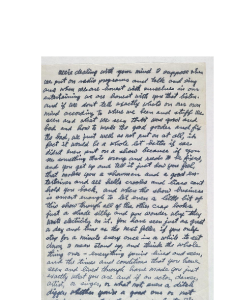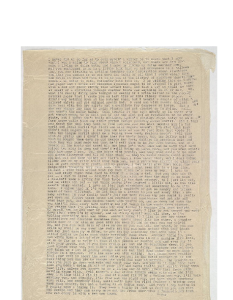Amy Marcy Cheney, more famously known as Amy Beach, was an American composer and concert pianist from New Hampshire. Although she is not a household name among your average non-musician, she used to be a famous and widely-known name and is considered the first American woman to compose and publish a symphony.1 She was an incredibly gifted musician from toddlerhood and was even said to have started composing her own melodies at age 4.2 Despite disapproval from her mother, who was fearful that the stigma associated with musical performers would tarnish her daughter’s upper-class reputation,3 Beach became a successful touring pianist. Her mother’s hesitancy was not unfounded, since she likely knew the hardships that Beach would face as a woman entering the compositional and performance world. Women composers weren’t listened to or respected and women performers weren’t taken seriously. People of Beach’s time in America were fearful of the female composer. As composer Antonín Dvořák stated, “ladies have not the creative power”4 to composer good music. The commonly held view was that women should just stick to performing pretty songs if they were musically gifted. The “scientific”5 art of composition should be left to the men, who, unlike women, won’t allow their emotions to get in the way of this very mathematical and precise art form. If you can’t tell, I’m rolling my eyes very hard right now.
Beach married Henry H.A. Beach when she was 18 and continued to pursue her musical education. Her husband, although supportive of her compositional pursuits, patronizingly feared that formal lessons would “change her creative voice”,6 so she threw herself into rigorous self-study of music theory and composition. She went on to compose over 150 published works, including cantatas, concertos, church music, symphonies, chamber music, choral music, and numerous art songs set to Shakespearean texts.7
In 1894, Beach published her first symphony, titled Gaelic Symphony, which drew on Irish folk melodies and was inspired by some of Dvořák’s compositional styles. The symphony premiered in 1896 by the Boston Symphony Orchestra under Emil Paur BOOK. and was met with widespread acclaim and backhandedly positive reviews. As a New York Times critic stated, “This symphony shows that composition is not beyond the grasp of the feminine mind.”8 Another critic from the Brooklyn Daily Eagle reported that “there is not a little strong writing, manful, one might call it, in which instruments are handled with confidence and authority.”9 These reviews can’t seem to separate the sex of the composer from how they listen to it. In Austin Latchett’s review in the Kansas City Journal, he just tells on himself about how unable he is to listen to a woman’s work without judging it differently than he would a man’s:
“There may be no logical reason why women should not write as good music as men; but it is a fact that they have not written so brilliantly, so profoundly nor so prolifically as men have. They are almost unknown in the symphonic world. Presented anonymously, there would probably be no one to suspect that yesterday’s symphony was the work of a woman; but knowing it to be such, it is but natural that some of its most distinctive beauties should be directly associated with its feminine origin.”10
These reviews are obviously steeped in misogyny but they bring up an interesting point – what is it that makes music “feminine” and “masculine”? In my opinion, it’s a societal and cultural-based answer, but that’s for another blog post. Although her works aren’t as commonly performed these days, Beach stands as an inspirational figure for women in music everywhere. It’s important to acknowledge that if she were not white and upper-class, she would never have gotten as far as she did in the compositional world. Still, seeing a female symphonic composer clearly made a lot of male musicians uncomfortable, and that’s something that makes me smile to read about.
1 Britannica, The Editors of Encyclopaedia. “Amy Marcy Beach”. Encyclopedia Britannica, 1 Sep. 2023, https://www.britannica.com/biography/Amy-Marcy-Beach. Accessed 5 November 2023.
2 Ibid.
3 Robin, William. “Amy Beach, a Pioneering American Composer, Turns 150.” The New York Times, The New York Times, 1 Sept. 2017, www.nytimes.com/2017/09/01/arts/music/amy-beach-women-american-composer.html.
4 Ibid.
5 Ibid.
6 Britannica, The Editors of Encyclopaedia. “Amy Marcy Beach”. Encyclopedia Britannica, 1 Sep. 2023, https://www.britannica.com/biography/Amy-Marcy-Beach. Accessed 5 November 2023.
8 Jenkins, Walter S. The Remarkable Mrs. Beach, American Composer: A Biographical Account Based on Her Diaries, Letters, Newspaper Clippings, and Personal Reminiscences. Harmonie Park Press, 1997.



